So we have gotten to the point that an actress playing a ditzy vice-presidential candidate can take turns before the camera with her look-alike — a vice-presidential candidate acting on TV — and it’s hard to tell the difference. Such was the case last weekend on Saturday Night Live when Tina Fey and Republican nominee Sarah Palin traded time on stage, Fey doing a send-up of Palin, and Palin sending up … well, Palin.
One of the skits had actor Alec Baldwin, a frequent host on the show, “mistaking” the real Alaska governor for the talented mime Fey doing an impression of Palin, whom Baldwin described as “that horrible woman,” the enemy of “all that we stand for.” Two weeks earlier on the same show, Fey had done a skit in which she, as Palin, babbled incoherently when asked about the nation’s ongoing financial crisis. Viewers who had earlier seen the actual candidate, asked the same question by CBS’s Katie Couric, babble the same disconnected talking points, realized that the two takes — the real and the fictional — overlapped to the point of being virtually identical.
Was it any wonder that “Palin” — or rather, Palin — winked at us in her nationally televised debate with Democratic counterpart Joe Biden (or someone we could only presume was the bona fide Joe Biden; the hair plugs looked like Biden’s, anyhow).
In other words, what is this? Prime time or the End Time? Is our political system devolving into soap opera? Or revolution?
The confusion isn’t just on the national scene. Consider this: A Memphis state representative, Democrat Mike Kernell, is running for reelection at a time when his son, 20-year-old UT student David Kernell, is under a federal felony indictment for hacking into the e-mail account of Sarah Palin (the real one). Some of the Alaska governor’s e-mails, gleaned from that account, were posted online, and, rather than smacking of high drama and political intrigue, they read like soap opera, one friend dishing to another.
Representative Kernell’s GOP opponent, a Memphis police officer named Tim Cook, responded to the Kernell family’s predicament with a statement that made one of the most rapid, self-canceling segues from concern to condemnation on record:
“When I heard the rumor that Mike Kernell’s son was the one responsible for hacking into the Vice Presidential candidate Sarah Palin’s e-mail, I was stunned. As a father, I sympathize with Mike Kernell and can understand what he is going through as a father. And I will pray for him and his family during this ordeal.
“However, this clearly shows what family values Democrat Mike Kernell has taught his children. It reflects the values of his 34 years as a state representative in and for the Democratic Party. These are not the type of values the citizens want in their representatives.”
Whereupon Cook went on to suggest a possible media conspiracy to ignore an alleged relationship between David Kernell and Democratic presidential nominee Barack Obama’s campaign manager, David Plouffe.
Then there’s a nearby state Senate race going on in neighboring Tipton and Fayette counties featuring a candidate, Democrat Randy Camp, who’s trying to simultaneously fend off both his Republican challenger, Dolores Gresham, and his ex-wive and former in-laws, who are carrying on a letter-writing campaign against him based on his alleged former derelictions as a husband. (Something of the same kind already had befallen Ray Butler, a Republican candidate for Shelby County trustee, whose ex-wife publicly campaigned for Democrat Paul Mattila, the winner in August’s countywide general election.)
Down in Mississippi, a U.S. Senate race is going on between Republican Roger Wicker, an interim fill-in for the now retired Trent Lott, and Democrat Ronnie Musgrove, the state’s former governor. As Memphis-area TV viewers have noted, these white-haired bespectacled look-alikes have thrown a plethora of attacks at each other, ranging from Wicker’s accusation that Musgrove virtually bankrupted the state as governor to Musgrove’s charge that Wicker has done little more in office than vote repeatedly to raise his own pay.
The mud-slinging match has gotten so bad that, in the course of a recent televised debate between the two, a Tupelo journalist asked the candidates, former roommates when they both served in the Mississippi state Senate, how they could sleep at night.
Yet beneath all the tomfoolery and Jerry Springer-isms of the current election season, something very much in earnest is going on: a struggle for power that could determine the fate of municipalities, states, and nations.
That battle in Mississippi, for example, could be crucial in determining whether Democrats — who are certain, it is generally acknowledged, to enlarge their majority in the Senate — can reach the magic number of 60, which would empower them to vote closure on debate and render party initiatives filibuster-proof in the next session of Congress.
A vitally interested spectator is Democratic nominee Obama himself, whose plans for health-care legislation and his vaunted revisions of the tax code in favor of “95 percent of Americans” could well depend on the outcome. Ironically enough, Musgrove has been loath, just as Wicker has charged, to make an explicit endorsement of Obama or even to mention him by name. (His preferred formulation: “I will support all the nominees of my party.”) Even so, Musgrove’s case is Obama’s own, for the reasons stated — though it is also true that the two competing roomies not only look alike, they seem to think alike on a variety of issues, both considering themselves conversatives — especially on social issues like abortion and gun rights.
And that duke-out between Camp and Gresham in state Senate District 26? Forget the interventions of the in-laws. That’s essentially a sideshow. What’s really at stake is whether the Republicans will continue to control the state Senate in Tennessee, a state which seems to be running in a slightly different direction from the nation. (As one example of the phenomenon, incumbent U.S. senator Lamar Alexander is universally regarded as a shoo-in over the dogged if underfinanced Nashville lawyer and ex-Marine Bob Tuke, who carries the Democratic party standard against him.)

The District 26 seat is the one that was held for 44 years by John Wilder of Somerville, the retiring Titan who was dethroned by Republican Ron Ramsey of Blountville for the position of lieutenant governor back in January 2007. (The Democrats have since taken revenge of sorts on maverick Democrat Rosalind Kurita of Clarksville, who unexpectedly voted against the party grain to give Ramsey the edge over Wilder, after the state Democratic executive committee voted to nullify her narrow 19-vote primary victory this year over lawyer Tim Barnes — on the grounds that the outcome was “incurably uncertain” — the party committees in the three counties comprising District 26 promptly voted to make Barnes the nominee. Kurita, who did indeed have considerable Republican support, in lieu of an official GOP candidate, is running a long-odds write-in campaign.)
Should three crucial Senate contests, including District 26, go the Democrats’ way, the next state Senate speaker and lieutenant governor will almost certainly be current Senate Democratic leader Jim Kyle of Memphis. If even a single one of those races goes for the GOP, Ramsey’s Republicans will remain in charge.
The GOP, in fact, has theoretical chances of capturing the state House, as well, needing only a turnaround of four seats statewide to do so. Hence, the mild flurry of excitement in Republican ranks over the Kernell affair. Cook, however, seems to be getting less support from the party than a string of previous opponents did against Kernell — a deceptively laid-back progressive who has been undefeated for nigh on three decades.
Turning full cycle back to Sarah Palin: There is no doubt that the previously unknown governor from the far north is a personality, as cover-worthy on the nation’s supermarket tabloids as any misbehaving show-biz nymphet. There is also no doubt that she has, as all the analysts seem to agree, animated the Republican Party’s base. Where doubt exists is whether the candidate now identified with the apochryphal line “I can see Russia from my house” can see the newly grave and mounting national dilemmas clearly enough to serve should the Republicans’ main man, Arizona senator John McCain, be elected and subsequently prove unable, through death or disability, to continue as president.
That’s just one of the realities that lie behind the giddy public face of a campaign year that has all too often masqueraded as an entertainment.
(Next week in Politics: a run-through of selected races on the November ballot and their likely outcome)
Shelby Dems Go Ballistic:
The Case of the Contraband Ballot
Anybody who has attended a meeting of the Shelby County Commission since Sidney Chism got elected to it back in 2006 has no doubt where the former Teamster leader and onetime Democratic Party chairman stands on the issue of term limits for elected officials. Chism, whose normal mien is robust and affable, becomes hoarse and virtually apoplectic when the issue is even discussed, seeing it as a means whereby the future Republican minority in Shelby County (for such, virtually all observers concede, is the demographic prospect) intends forevermore to straitjacket and tame the Democratic majority.
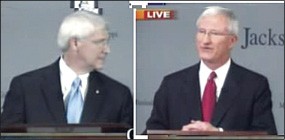
Roger Wicker and Ronnie Musgrove
“This is the first time a majority has ever voluntarily handed over power to a minority” was Chism’s refrain countless times during the debates earlier this year that led to referenda featuring two different versions of term limits for Shelby County elected officials. The first variant of the idea — prescribing three four-year terms as the max for the county mayor, county commissioners, and five newly defined countywide offices — went on the August election ballot and represented something of a triumph for Chism, who had thundered vigorously whenever the subject of term limits came up.
He had something of a point. The commission, which devoted innumerable hours, considerable heat, and every now and then a modicum of light to the issue of charter revision last year and this, had never been enjoined to do or say anything about term limits. All the commission had been faced with, as a result of a January 2007 finding by the state Supreme Court, was a need to re-create in its charter the five offices — sheriff, trustee, assessor, register, and county clerk — which had been invalidated on a technicality by the court.
At length, during the course of many contentious meetings, augmented by a series of public forums, a plethora of other issues crept into discussions — term limits, a popular concept in the white Republican government-distrusting suburbs, prominent among them. Chism did his best to keep the issue off the ballot, and he and various commission allies — mainly Democratic and mainly black — did the next best thing in getting the three-term proposition on, especially since it would have raised the existing limits on future mayors and commissioners by a whole four-year term.
But that proposition lost in August, by a hair. And Chism and his allies had shot their wad. Try as they might, fulminate as they would, they could not prevent a commission majority, cowed by the August defeat of the relatively liberal three-term provision, from putting together a new series of referenda, including one imposing a stricter two-term limit on the five redefined county offices. The Shelby County mayor and the 13 members of the commission already were limited to two terms as the result of a 1994 referendum which, after the narrow failure of the August proposition, would remain in effect.

The term “ballistic” is probably too mild a descriptor for the state of mind this fact has induced in the Chism wing of the county commission and, equally importantly, of the Shelby County Democratic Party, whose steering committee is dominated by Chism partisans.
Fade to this past week, when the first of an estimated 60,000 copies of official party voter guides rolled off the presses at A-1 Print Services on Brooks Road and got seen by party cadres. The letter-sized, full-color sample ballot bore mugshots of the party’s nominees and endorsed candidates: Barack Obama, Joe Biden, Bob Tuke for U.S. Senate, Steve Cohen for Congress, etc., etc., through various legislative candidates and a candidate for the Memphis school board.
So far, nothing out of the ordinary. It’s the kind of thing both major political parties and various other organizations that endorse candidates do just before election time. Only one problem: Mixed in with the candidates’ portraits is a small but prominent box bearing the message: “Vote on Referendums/ SAY NO TO REFERENDUMS.
What did we say about the word “ballistic”? Reassign it to numerous aggrieved Democrats, both executive committee members and rank and file, who were never consulted about the all-encompassing wording and were now prepared to out-Chism Chism in their outrage. Not to mention the County Commission majority, who had worked all those months to put together a referendum package. Nor the seven members of the Memphis Charter Commission, who had labored even longer to put together a package of referenda revising the city charter.
“SAY NO TO REFERENDUMS”: That took in a lot of territory — two commission-approved options (one merely reestablishing the five redefined county offices, another establishing a two-term limit for them); two City Council ordinances (one laying down the conditions for recalling officials, another establishing revised residency requirements for certain classes of city employees); and six recommended revisions to the city charter proper.
Ironically, it is only these last six ballot options — all relating to the city charter — that each go by the name of “referendum.” The county term-limits provision so loathed by Chism and his cadres on the Democratic steering committee is termed an “ordinance.” Talk about drowning the baby with the bathwater! Here were nine other offspring going down the drain along with the targeted one.
Although much of the preliminary activity that resulted in the publication of the party ballot is still shrouded in mystery, the facts would seem to be these: At the September meeting of the full Democratic executive committee, a resounding majority of the members present voted to reject the ballot initiative for county term limits. At the October meeting of the party steering committee, which is the executive committee’s smaller governing core, county commissioner Steve Mulroy, the leading local proponent of city-charter referendum Number Five, pitched the initiative, which would approve an instant runoff formula for municipal elections. The issue was not approved, on the grounds, said party vice-chair Cherry Davis, that the steering committee had not had ample opportunity to study the initiative. Period. Those are apparently the only formal actions ever taken by an established organ of the Shelby County Democratic Party.
Who then approved the ballot with its mischievous box on “referendums”? Apparently not party chairman Keith Norman, who was handily reelected early this year despite widespread criticism of his absentee, hands-off style. It was Norman, in fact, who, along with Mulroy, called a press conference Monday to vent criticism of the suspect ballot. Typically, groused Norman’s critics, the chairman was a no-show at the press conference, which was presided over in his absence by city councilman and city charter commission chairman Myron Lowery, Mulroy, Councilman Shea Flinn, local NAACP chair Johnnie Turner, steering committee member Lynn Strickland, and former party chairman David Cocke.
Chism was the prime suspect as the prime mover of the unauthorized mystery ballot. It was party members close to him who delivered it to the printer. But the commissioner declined to take credit Monday, saying, “I had nothing to do with it. Didn’t even know about it. But I agree with it!”
What the protesting group at the press conference asked was that those copies of the sample ballot — the great remainder — that had not been passed out should have labels pasted over the offending box before being distributed. In a meeting of the steering committee that took place later Monday, various alternative actions were reportedly discussed, including an offer from Mulroy to foot the bill for the labels.
Some who were there described the steering committee meeting, in part, as a “bash Mulroy” session. That sentiment, such as it was, emanated from the Chism cadres, who apparently sought an apology from the commissioner for his part in voicing public dissent concerning the suspect ballot. Certainly Chism himself had earlier expressed himself adversely: “Who appointed Steve Mulroy to speak for Democrats?” he had said.
A resolution of sorts to this proverbial Mell of a Hess was finally reached at Monday night’s steering committee meeting. The committee voted to have one more press conference, presided over by Mulroy and Norman, which would clarify the fact that only one act of opposition — to the term-limits resoluion — had ever been resolved on by the Shelby County Democratic Party. And the committee did in fact accept Mulroy’s offer to pay for new labels, to be pasted over the offending boxes, pointing out that reality.
Nobody was certain what the effect of the brouhaha would be on voters contemplating the affected ballot provisions. The affair could result in their damnation. But it could equally well end in a backlash favoring the 10 referenda, city and county. Given that early voting is now well under way, either reaction is entirely possible.
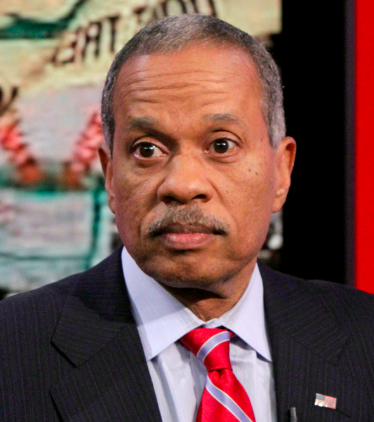
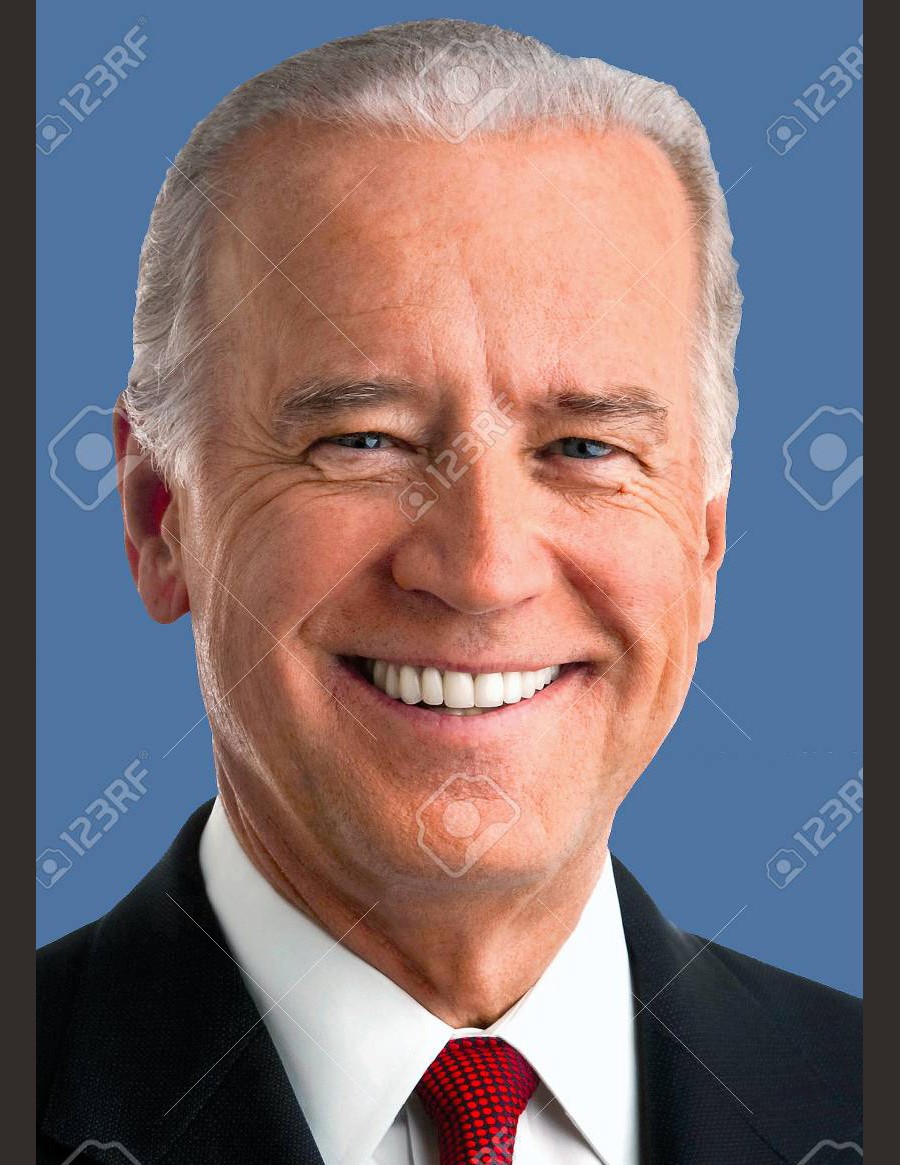
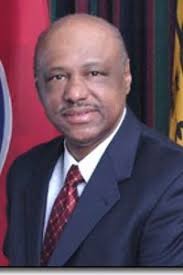
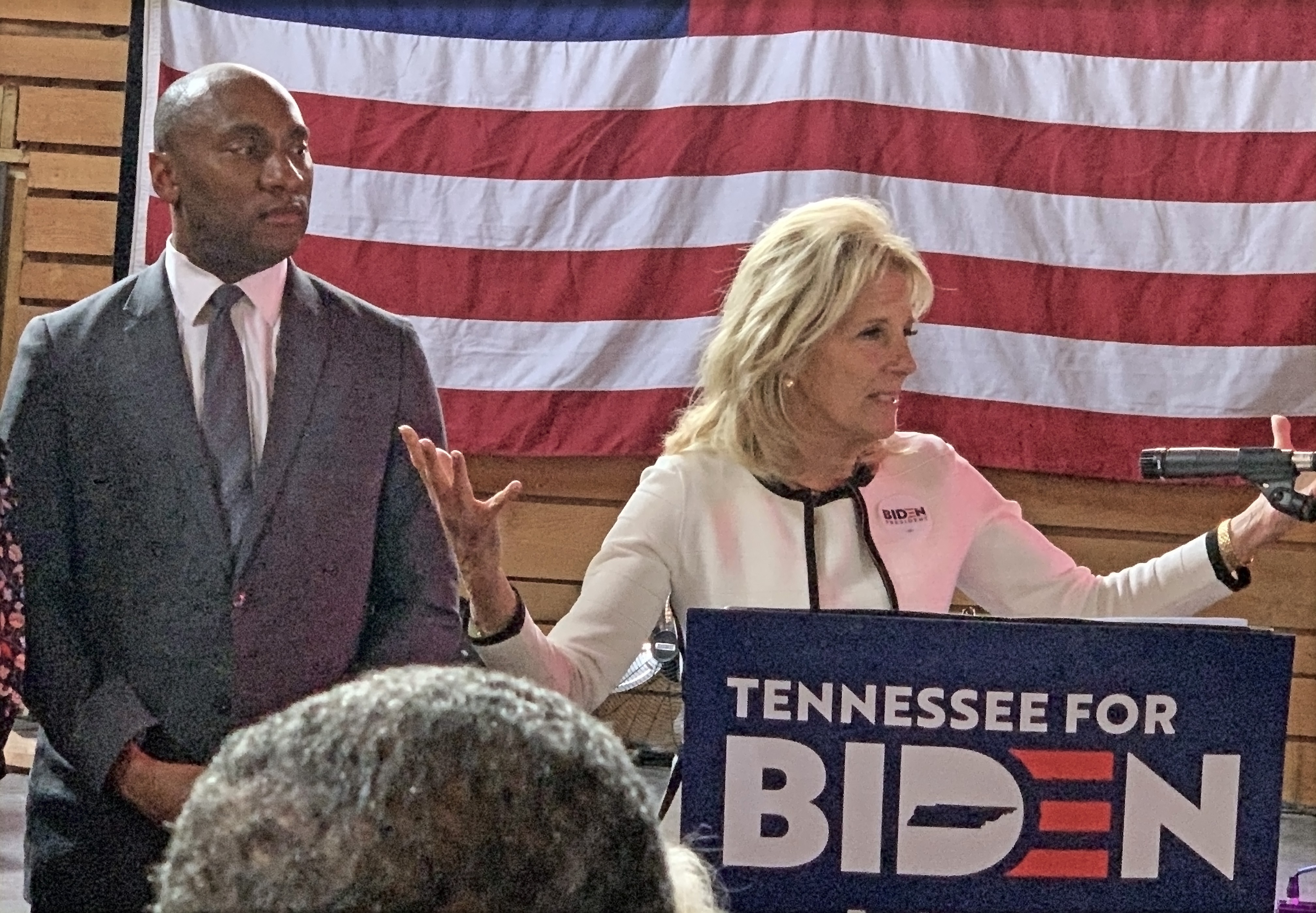 JB
JB 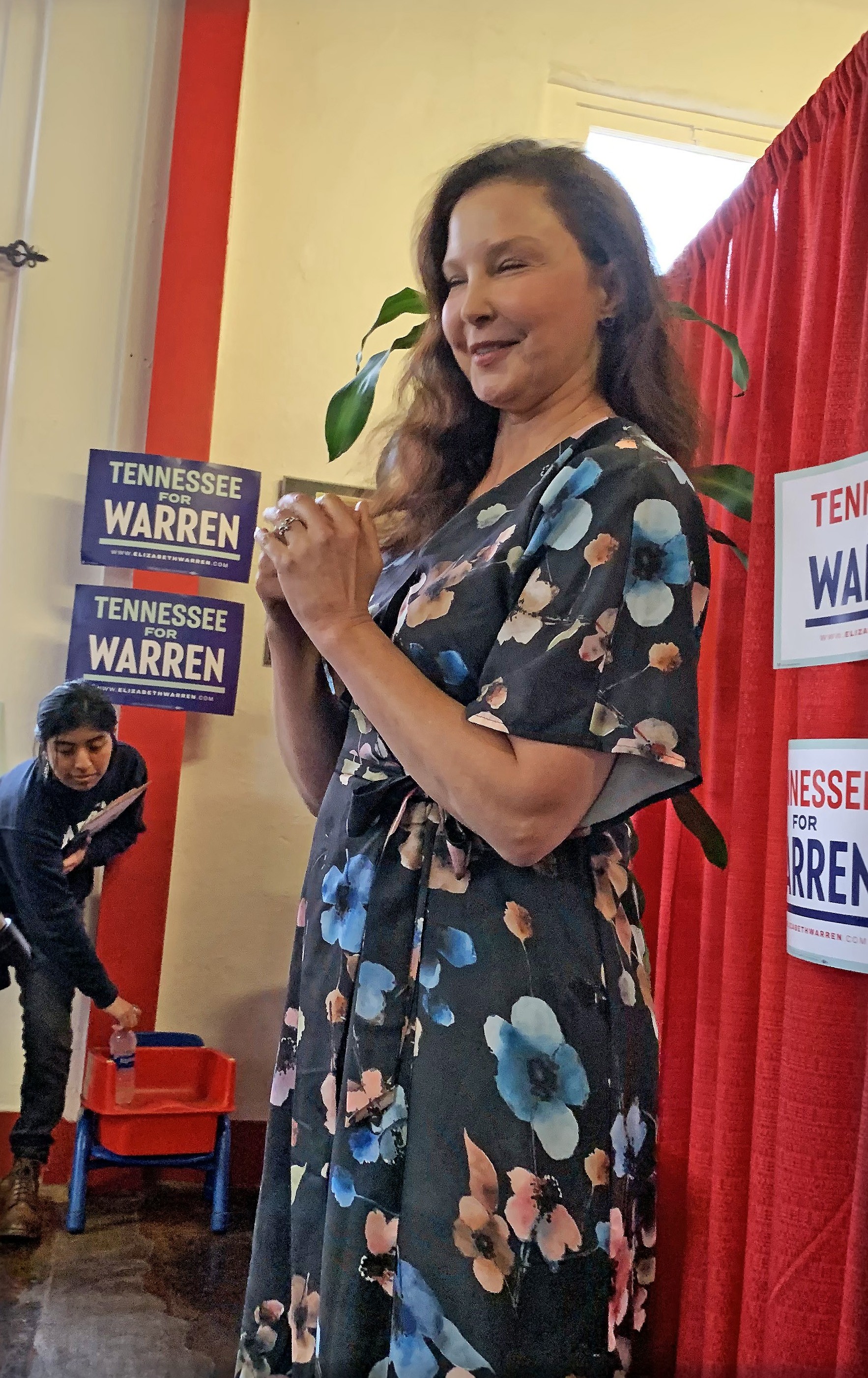 JB
JB 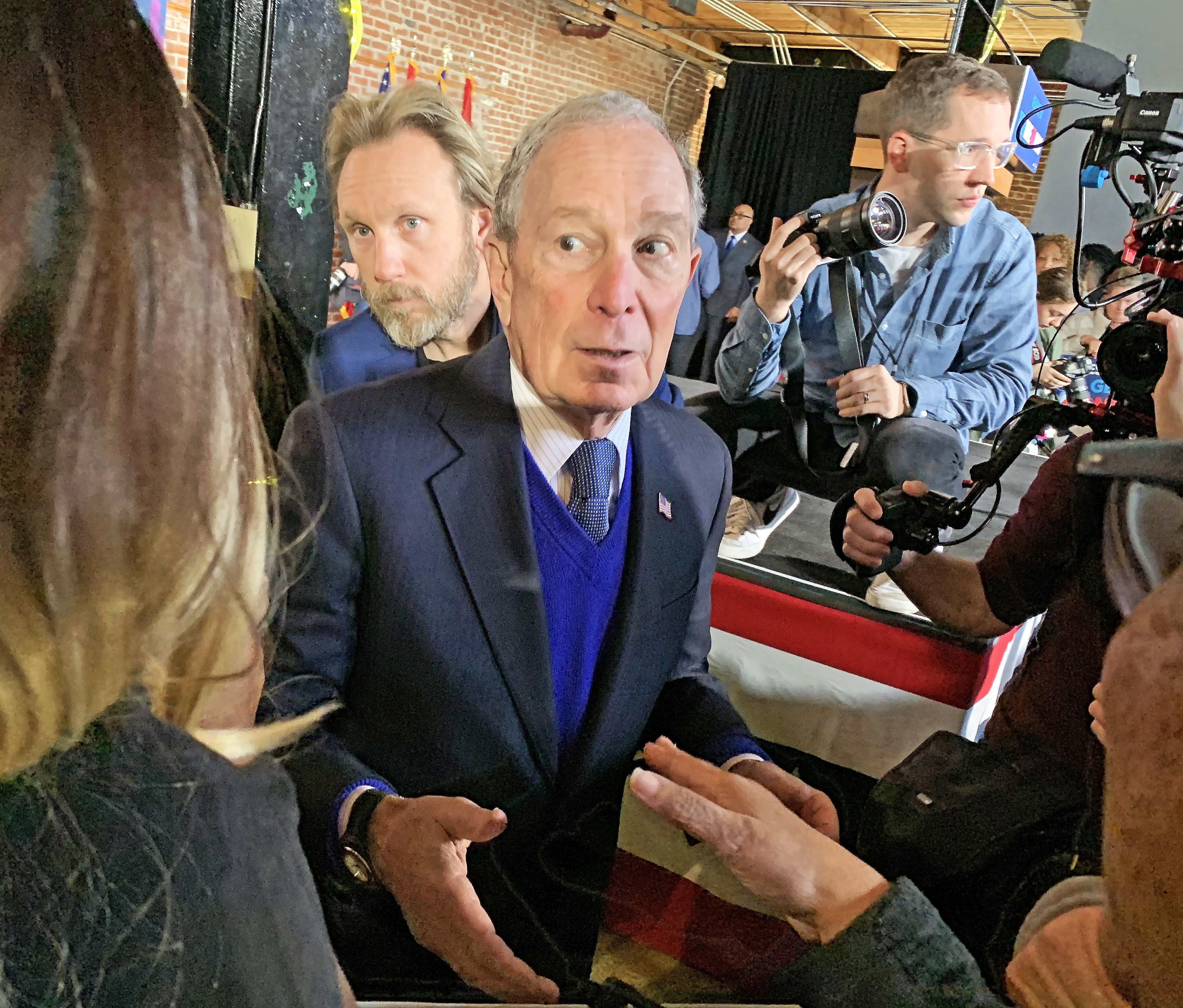 JB
JB 
 JB
JB 




